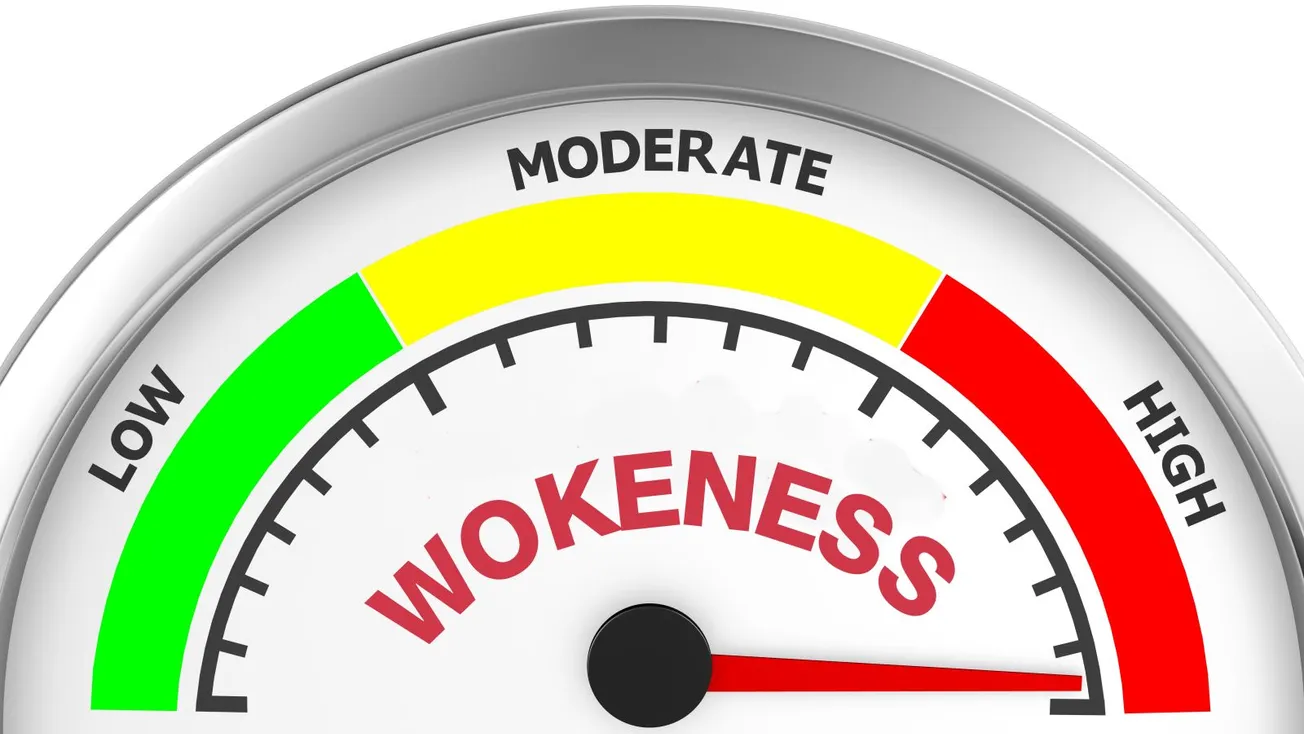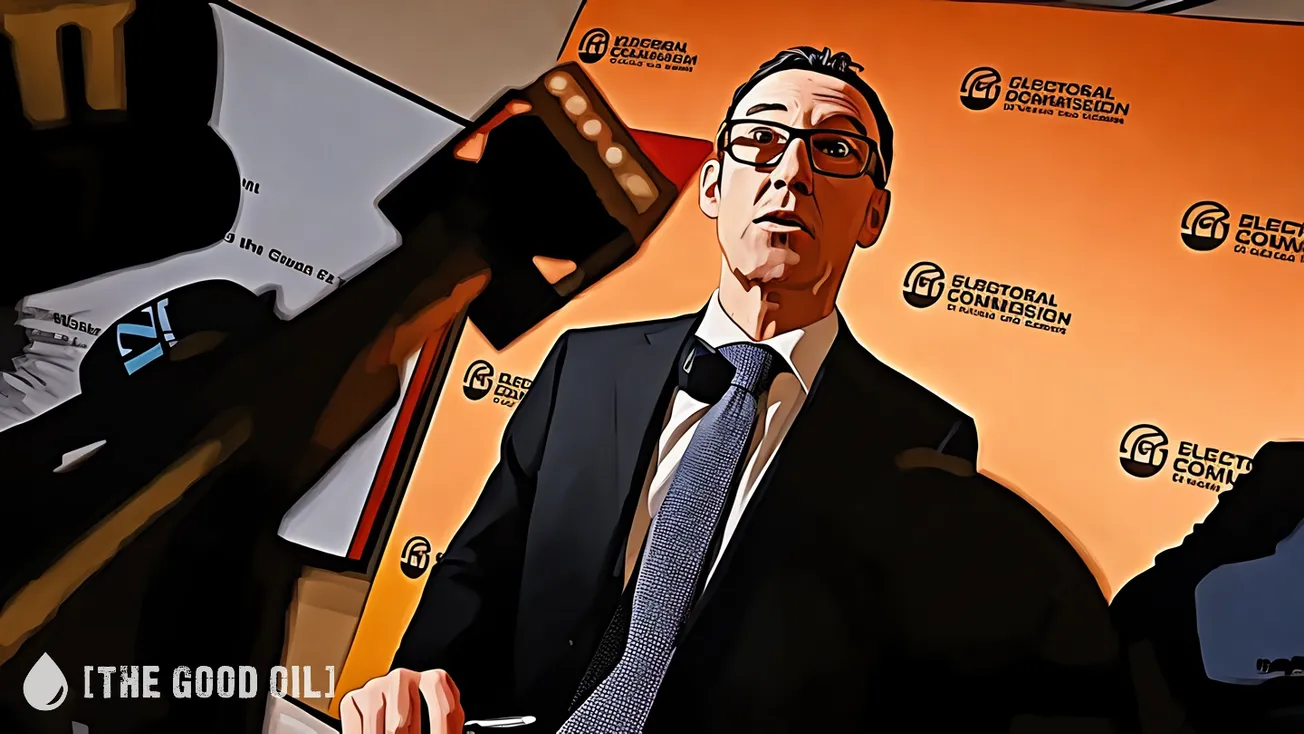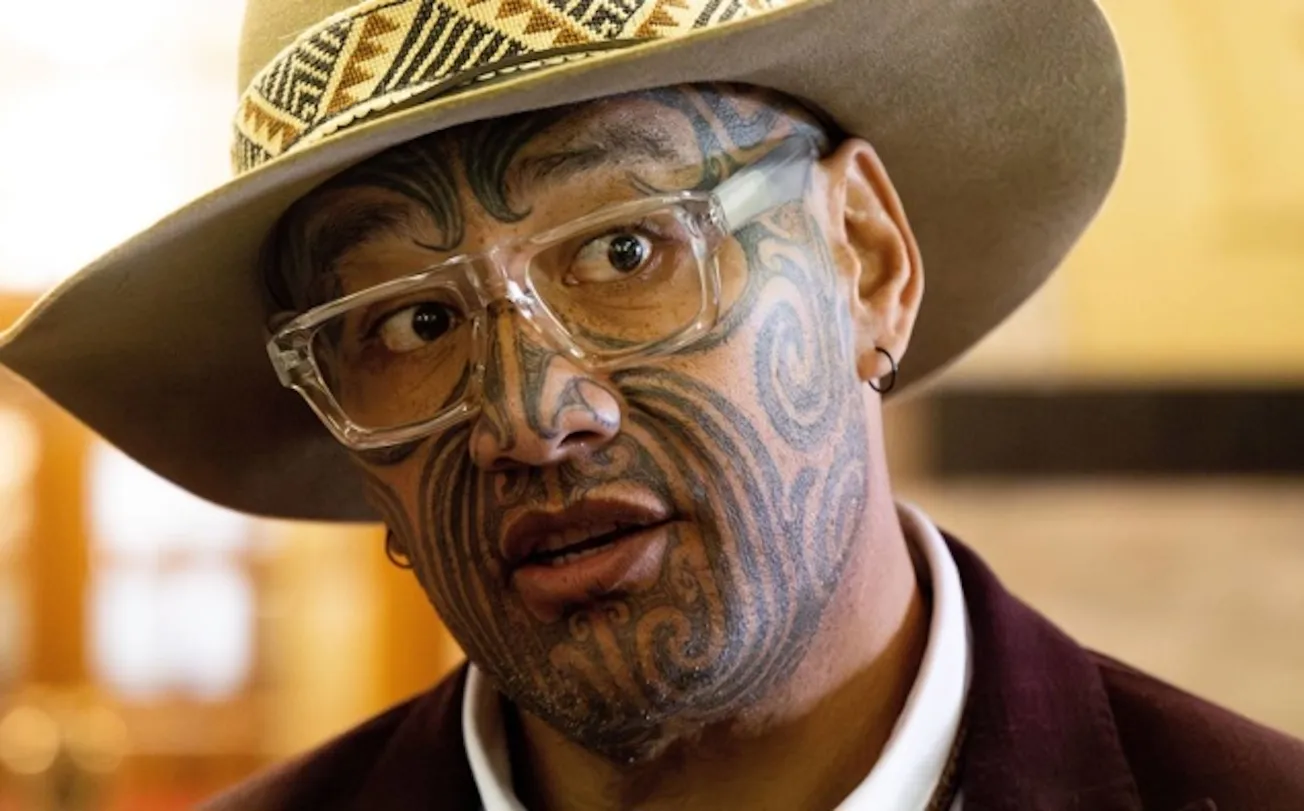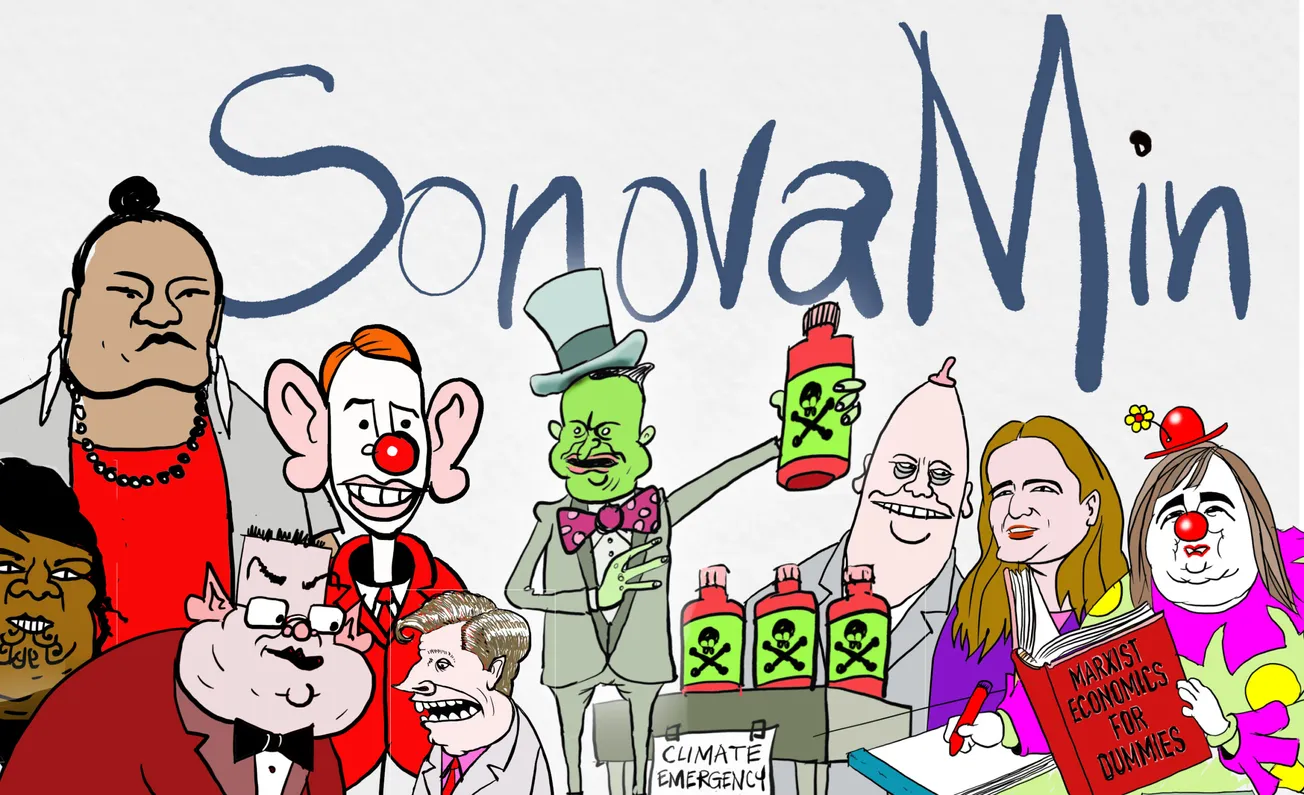Table of Contents
Dr Muriel Newman
‘Oppositions don’t win elections, governments lose them’ has long been conventional Westminster wisdom.
What is remarkable about Labour’s election defeat is how significantly they lost. It was a historic turnaround from 50 per cent support at the 2020 election to just 27 per cent three years later. What caused them to lose so much support – and are there any lessons for the new government?
First of all, Labour’s defeat was Jacinda Ardern’s defeat. While Chris Hipkins was able to make some changes at the margins, by the time he took over as PM in January, the damage had already been done.
In effect, the election was a rejection of the radical woke ideology that Jacinda Ardern had imposed onto the country with complete disregard for the fundamental rights New Zealanders had come to expect from our democracy.
From the time she first became Prime Minister in 2017, the former world president of the International Union of Socialist Youth embraced identity politics. Under this Marxist agenda, the struggle for social justice shifts from its traditional focus on the working class, to the so-called ‘oppressed’ groups in society centred on race, gender, and sexuality.
New Zealanders were no longer regarded as equal citizens but were fragmented and divided, categorised according to our differences – including deeply personal characteristics such as the colour of our skin and our sexual preferences.
The 2023 Census epitomised this change, causing such widespread offence, that many thousands of New Zealanders refused to fill in their forms.
Some declined because they objected to the ethnicity question, which yet again, failed to provide an option for them to state they are a “New Zealander”.
But many more rejected the new gender question: “What is your gender?” it asked, where the explanation stated “Gender refers to a person’s social and personal identity as male, female, or another gender (or genders) that may be non-binary. Sex at birth refers to the sex that was recorded at a person’s birth (for example, on their birth certificate). A person’s gender and sex at birth may differ.”
This divisive idealism has been embraced by the public service – including in education, where our young children are being imbued in the culture wars. It’s reached a point where in many government agencies employees are required to include gender pronouns whenever they sign their name.
As the identity juggernaut rolled on, Kiwis were increasingly labelled as victims or oppressors, the exploited or exploiters. And if you were a white, straight male, you were effectively discarded as no longer useful in Labour’s new woke world.
New Zealand had a first-hand glimpse of where this was all heading in Albert Park back in April, when a surging mob of thousands of howling rainbow rights activists threatened to crush British women’s rights campaigner Posie Parker, as she attempted to address a gathering of supporters – while the Police stood by and did nothing.
The violence and anger on display that day, will be an enduring reflection of the damage being caused to our society by the Ardern-Hipkins Labour Government’s championing of the politics of identity and division.
It served as a reminder of the incident almost 12 months earlier when New Zealanders from all walks of life, concerned about the effect that vaccine mandates were having on careers, families, and relationships, converged on Parliament for answers. But instead of meeting with protest leaders and resolving matters, Jacinda Ardern looked down from the balcony of her 9th floor Beehive office, as senior members of her government bullied and denigrated the doctors, nurses, Police and Armed Services personnel who were amongst those gathered, calling them a “river of filth” before Police in full riot gear were ordered in on what became one of New Zealand’s darkest days.
It was a turning point for Jacinda Ardern’s administration – her “kindness” was exposed as a mask hiding socialism’s innate cruelty and malice.
Nowhere, however, was the politics of division more visible than through race. With Labour’s political agenda aligned with the demands of the tribal elite for control of New Zealand, their language and culture were forced onto the country.
Three Waters was steamrolled into law – tribal control regarded by iwi as a first step towards the ownership of freshwater. An Apartheid health system was introduced that ensures anyone claiming Maori ethnicity gains priority treatment over those in greater clinical need. And dangerous criminals now roam our streets, let out of prison to ensure Maori are no longer over-represented in the incarceration statistics.
All of this was mapped out in Labour’s He Puapua blueprint for Maori sovereignty by 2040 – an agenda kept secret from the public during the 2020 election campaign but rolled out at pace after they won majority rule.
A fictitious reinterpretation of the Treaty of Waitangi as a 50:50 partnership was used to justify co-governance and tribal rule. And to ensure there was no negative publicity, the media were “bought off” through Labour’s $55 million Public Interest Journalism Fund, which required recipients to promote their ‘partnership’ fiction.
Any attempt to object to the iwi takeover was met with accusations of racism, and there was widespread bullying and intimidation by tribal activists determined to remove any obstacle on their path to power.
So while Kiwis strongly objected to the dangerous He Puapua agenda that was being forced onto our country – with no public mandate whatsoever – most were in no position to fight back.
Until that is, they were in the privacy of the polling booth.
And then they changed the government.
This week’s NZCPR Guest Commentator, leading leftwing political commentator Chris Trotter, believes Labour’s focus on race led to the loss of their working-class voter base and was a key factor in their electoral defeat:
“Neither Ardern, nor her successor, Chris Hipkins, had the intellectual or ideological sophistication to argue either For or Against the revolutionary ideas contained in the He Puapua Report.
“Labour made no case for co-governance because it couldn’t. For the previous 40 years it had put ‘all that Treaty stuff’ into the too-hard, or the too-scary, basket. When the sovereignty hand grenade finally exploded, in the second term of the Sixth Labour Government, the best Labour could manage was to blame the resulting injury to the New Zealand body politic on the ‘racism’ of the people whose votes it would need to go on governing.
“Unsurprisingly, it didn’t get them. Almost accidentally, Labour discovered what it would take to make the working-class stop voting for it. Making those citizens feel as though they had, somehow, to justify their right to participate in shaping their nation’s future: that was the crucial catalyst for electoral defection.
“Like their European and American counterparts, the New Zealand working-class has completed its historical journey from Left to Right.
“And it ain’t going back.”
The backlash from Kiwis sick and tired of being vilified and sneered at whenever they spoke their mind is what helped change the government. But it wasn’t just over identity politics issues either.
In the post covid era, with the public even more distrusting of self-acclaimed experts preaching a prophecy of doom, Kiwi patience is running out over the whole woke climate change agenda. While some people remain terrified of the future as a result of the frightening indoctrination they’ve been subjected to – and disgracefully that includes school children – there’s a high probability that increasing numbers of New Zealanders, like citizens in other countries, are becoming sceptical.
In the US in March, a Rasmussen survey revealed three out of five US voters believe the climate change propaganda they are constantly bombarded with is about political power and control, not the climate. And in Germany, a similar trend could be seen in April, when a “Berlin Climate Neutrality By 2030” referendum was rejected by 82 per cent of voters.
In other words, if New Zealanders were given a choice of whether taxpayer funding should be used on questionable schemes to reduce global emissions, or on improving the country’s essential infrastructure to make us more resilient to adverse weather events, it’s highly likely most Kiwis would prefer to spend the money on adaptation.
Furthermore, given the huge financial stress on families struggling with the rising cost of living, it is surely incumbent on the new government to urgently review Labour’s climate models, since, by setting the carbon levies too high, they have been forcing Kiwis to pay far more than they should for petrol, food and everything else.
The suppression of free speech was another of Jacinda Ardern’s woke objectives. She not only proposed an oppressive ‘hate speech’ regime that would have criminalised anyone criticising groups defined by identity, but under her tutelage truth was increasingly suppressed and labelled as misinformation or disinformation.
Our former PM’s paranoia was revealed in a speech to the United Nations last year where she described free speech a weapon of war: “The face of war has changed… The weapons of war have changed, they are upon us and require the same level of action and activity that we put into the weapons of old.”
She targeted those questioning the climate change extremism that’s central to the woke agenda: “How do you tackle climate change if people do not believe it exists? The weapons may be different, but the goals of those who perpetuate them are often the same. To cause chaos and reduce the ability of others to defend themselves. But we have an opportunity here to ensure that these particular weapons of war do not become an established part of warfare.”
Given her socialist DNA, was our former PM planning to criminalise anyone questioning climate scaremongering, which has now become a prime weapon used by the left to retain influence and impose authoritarian control? Is that what she is now championing on the world stage?
Jacinda Ardern was the embodiment of new-age socialism. In true Orwellian style, she divided the nation but claimed we were a team of five million.
We, the “team of five million”, became her guineapigs – the woke agenda she thrust onto us, the same ugly failed socialism of old, a regime that represses freedom and perpetuates failure.
Labour’s decimation in the polls represents a rejection of woke. New Zealanders do not want to be divided by race, nor by any other categorisation, and nor do they want to be threatened by exaggerated climate predictions to justify authoritarian control.
So where does this leave the new government?
Without a doubt, the new National-led administration has a big job ahead of it, undoing the damaging changes that Labour introduced and that the public so resoundingly rejected.
All laws and regulations that have led to divisions based on identity need to be removed. As must all of the changes introduced under the He Puapua framework.
This is crucial.
What was orchestrated during Labour’s last three years was nothing short of a tribal coup. Governance power and authority was transferred from publicly elected officials to the totally unaccountable representative of multi-million-dollar iwi business corporations, who were acting in their own self-interest, not the public good.
Unless all remnants of those He Puapua changes are removed from both the public and private sectors, there is a grave risk that at some time in the future, iwi will be empowered to pick up where they left off and finish the job.
What New Zealanders now desperately need is a focus on unity and equality. An opportunity to get ahead and build a decent life for themselves and their families as proud Kiwis living in a free democratic society that celebrates success and is characterised by opportunities for all.
If they are to become more than a one-term government, the new coalition will need to firmly close the book on the Ardern legacy.
Putting right the damage that has been done and setting us on a new course, is what will be needed to gain the respect of voters and win their support for another term.








